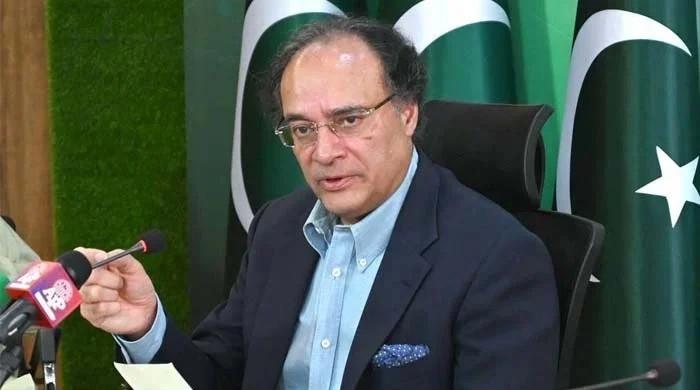- 42% of optimistic Pakistanis on economic orientation.
- Inflation control, reforms stimulating consumer confidence.
- Employment safety has reached the highest level since 2019.
Islamabad: The Minister of Finance Muhammad Aurangzeb welcomed the conclusions of the last survey on the confidence of Ipsos consumers on Sunday, citing them as a clear indication of improving the economic situation and the trust of the growing public in Pakistan.
According to a statement published by the Ministry of Finance, the survey shows a significant increase in consumer confidence, 42% of Pakistanis now believing that the country is evolving in the right direction.
The Minister of Finance said that these results reflect the success of the coordinated and responsible economic strategy. He added that public confidence has been won by key measures such as inflation control and stronger budgetary discipline.
Aurangzeb noted that consumer confidence has increased, in particular in the fields of large -scale shopping and investments, suggesting that households feel more security about their financial prospects.
He also stressed that confidence in employment safety has reached its highest level since 2019.
At the same time, the government has projected a resurgence of inflationary trends, providing for an average inflation rate based on the IPC up to 7.5% for the 2025-2026 budget, a notable increase compared to the 5% recorded during the current financial year, according to the The news.
The Ministry of Planning has warned that the external sector could be subject to pressure, as the relaxation of import restrictions and reimbursements of the future debt should expand the current account deficit in the upcoming budget.
The annual plan coordination committee (APCC), which should meet on June 2, 2025, should consider recommending the overall macroeconomic framework for the upcoming budget, in particular by imagining a 4.2% GDP growth rate for the next budget against 2.68% for the outgoing financial year.
These macroeconomic projections show that the stabilization mode will continue during the coming fiscal year under the tight node of the International Monetary Fund (IMF).
According to government prescriptions, public investment should drop from 2.9% to 3.2%. Likewise, private investment should also drop from 9.1% of GDP to 9.8%.




